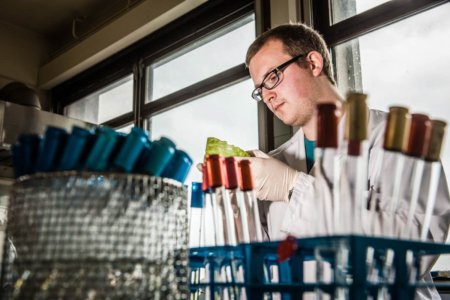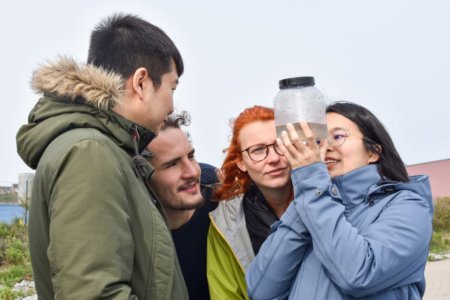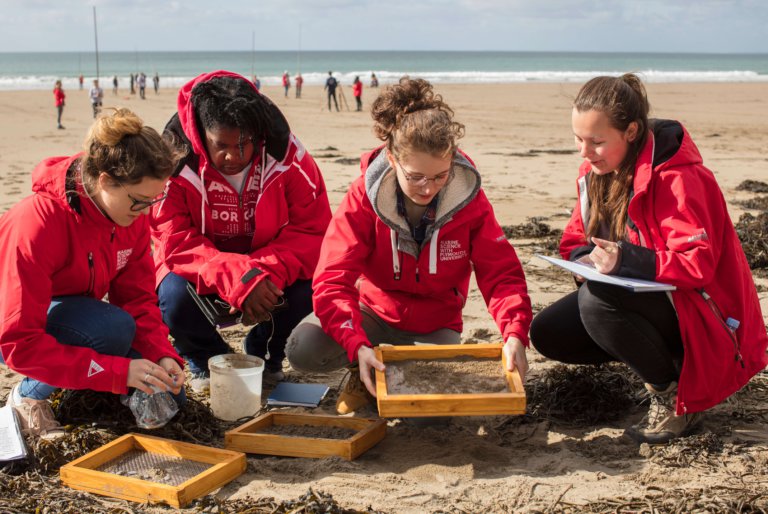
Water covers a whopping 71% of the Earth’s surface. Beneath them, the oceans contain towering mountain ranges and deep canyons, known as trenches, just like those on land. Much of it is still largely unexplored, but its importance spans wide and deep.
At least 50% of the planet’s oxygen and the protein source for more than one billion people around the world come from the ocean. Most of the earth’s biodiversity can be found here too. By 2030, an estimated 40 million people are set to be employed in ocean-based industries.
Yet, for all its benefits, the oceans are now in need of saving. Today, scientists are uncovering how climate change is accelerating the acidity in our oceans, as well as its impact on marine life and ecosystems. “Carbon emissions are driving ocean warming and acidification, destroying biodiversity and causing sea level rise that threatens heavily inhabited coastlines,” says António Guterres, Secretary-General of the United Nations.
In order to protect and preserve the ocean and all it sustains, we must create a new balance, rooted in true understanding of the ocean and how humanity relates to it. How can we achieve that? By harnessing the power of science and technology to rebuild a connection to the ocean that is inclusive, innovative, and informed by lessons from the past.
Here are four European universities that offer insight and training to design frameworks that appropriately address 21st-century challenges:
University of Plymouth, School of Biological and Marine Sciences
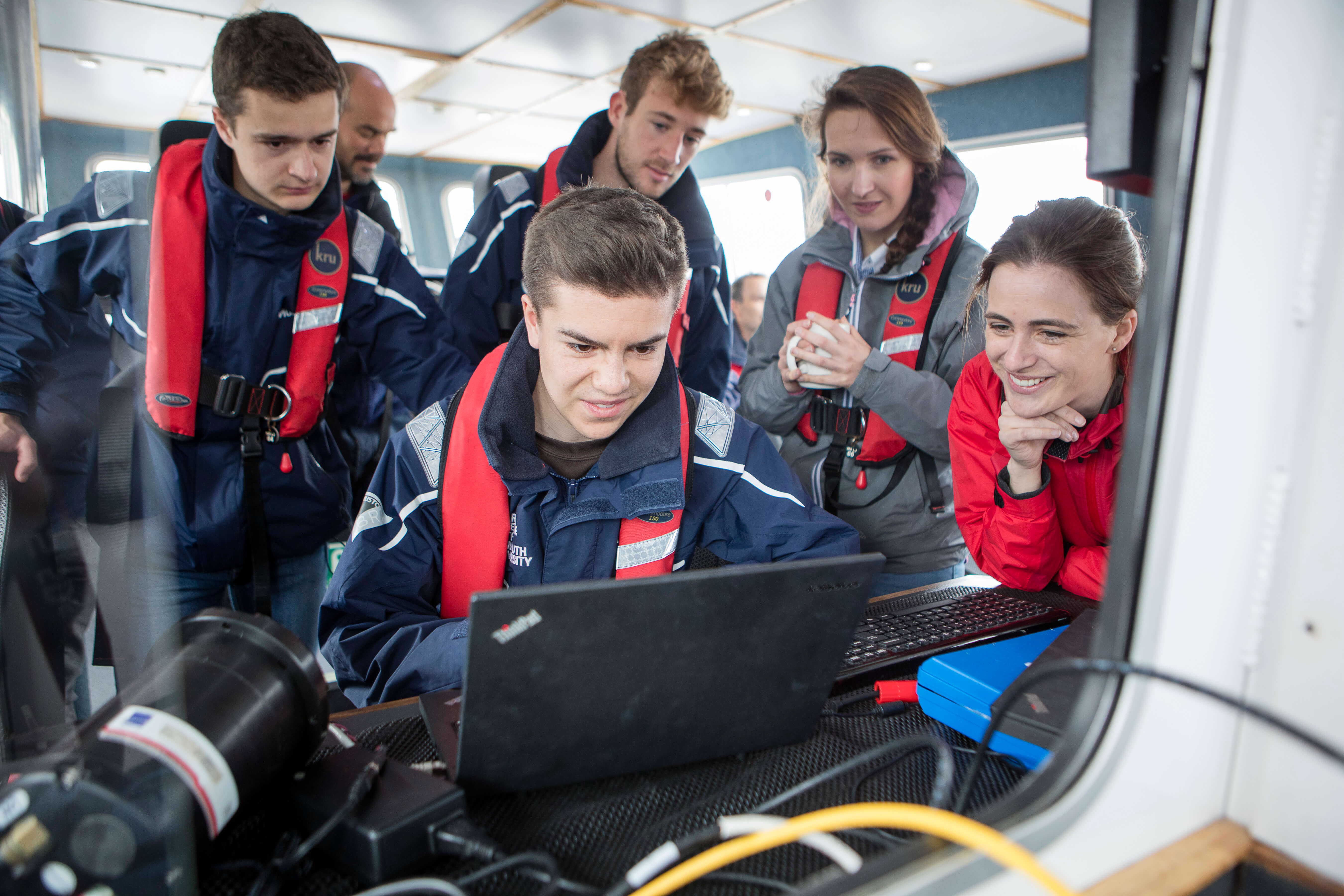
Students working on board the Universities Research Vessel, Falcon Spirit, conducting field measurements on Tamar Estuary in Plymouth, UK. Source: University of Plymouth
Are you passionate about conserving biodiversity, managing and restoring habitats, understanding animal behaviour, and eradicating coastal erosion, threatened ecosystems, and pollution? The University of Plymouth’s School of Biological and Marine Sciences aims to equip students with the skills needed to make a positive impact on the sustainability of our environment and society.
Depending on your career goals, you can choose from a wide range of courses, including BSc (Hons) Ocean Exploration and Surveying; BSc (Hons) Oceanography and Coastal Processes; BSc (Hons) Conservation Biology; MSc/MRes Applied Marine Science; MSc Offshore Renewable Energy; MSc Hydrography; MSc Sustainable Aquaculture; and MSc Zoo Conservation Biology. These courses are delivered under three subject areas: Biological Sciences, Marine Biology, and Marine Science.
You’ll get to put theory into practice as the classroom extends into the natural environment, ensuring students enjoy the best learning experience. Here, you’ll have a natural laboratory – including estuaries and the open sea – at your doorstep. As Plymouth’s courses focus on fieldwork and are uniquely resourced with a 4.65 million pounds Coastal Marine Station, you’ll get to study in lecture facilities overlooking the sea, a wet lab for sample examination and analysis, a seawater aquarium, a dedicated dive centre, field equipment storage and changing facilities, as well as a base for bespoke research vessels.
The school is home to ocean explorers, scientists and conservationists, making it the ideal place if you’re an aspiring environmental changemaker who wants to address real-world challenges.
Plymouth’s strategic location in the epicentre of marine activity also means that other world-class institutions have partnered with them in their MSc programmes, further accentuating the university’s prowess in the field. The countryside is also a stone’s throw away, making Plymouth well positioned to offer their Biological Sciences programmes, in addition to providing students ample opportunities to gain useful field skills for better job prospects.
The University of Plymouth is ranked among the top 25 institutions globally — and first for marine research — in the Times Higher Education Impact Rankings 2021. They were also awarded the Queen’s Anniversary Prize for Higher and Further Education for their ground-breaking research on microplastics pollution in the oceans and its impact on the environment and changing behaviour.
University of Helsinki: Faculty of Biological and Environmental Sciences
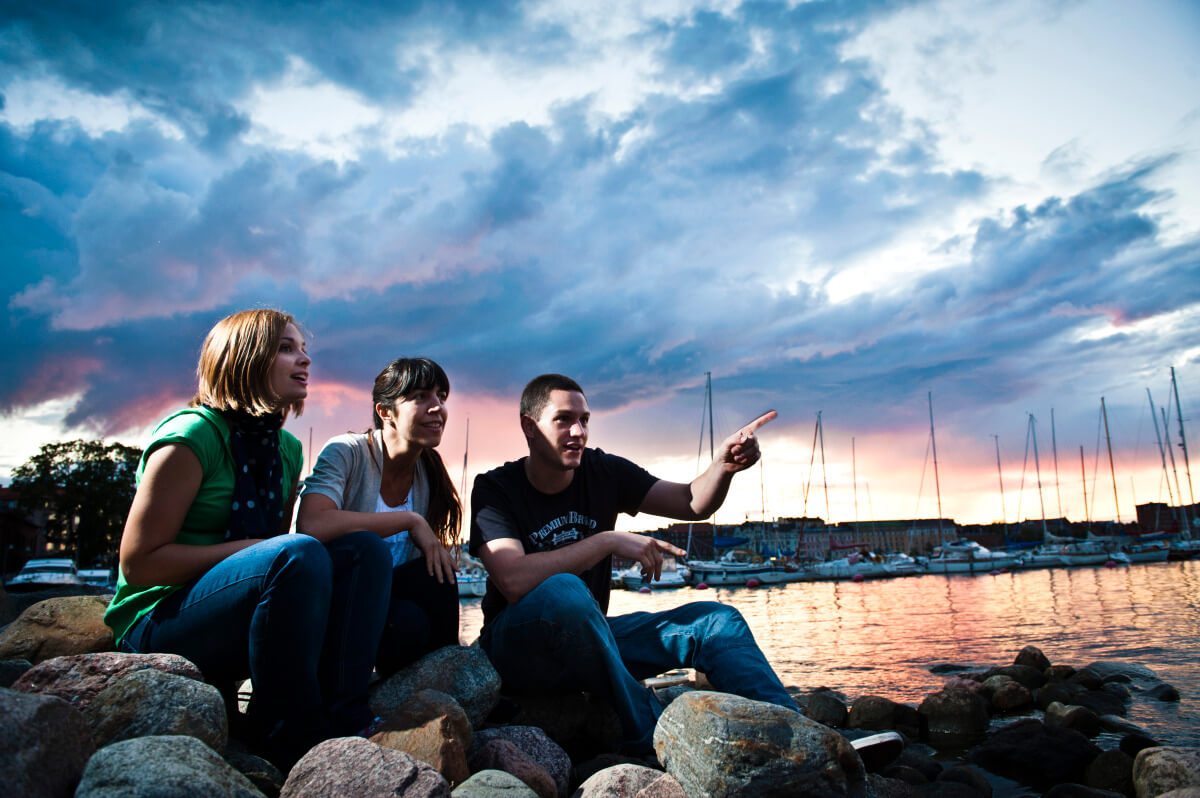
The Faculty of Biological and Environmental Sciences directs learners’ professional capabilities towards a future filled with success. Source: University of Helsinki
At the forefront of innovation, the University of Helsinki is helping create a sustainable future through cutting-edge research, awe-inspiring academics and professors who value students’ creative input. Today, this multidisciplinary academic community solves problems that concern all of us, on a global scale.
The faculty offers a range of content-rich, dynamic bachelor’s and master’s programmes. The master’s programmes cover topics such as Ecology and Evolutionary Biology; Environmental Change and Global Sustainability; Genetics and Molecular Biosciences; Microbiology and Microbial Biotechnology; Neuroscience; and Integrative Plant Sciences.
The Master in Ecology and Evolutionary Biology is a two-year programme that offers a perspective on biology from the level of genes to communities of species. By the end of this programme, students will be familiar with a wide variety of topics in three areas: ecology, evolutionary biology and conservation biology.
Commenting on the programme, student Gabriele Reyes says, “I take courses from other faculties than the Faculty of Biological and Environmental Sciences as well, such as the Faculty of Science. It is an amazing opportunity, for instance, to learn more about statistics and geographical information systems.”
If you want to learn about the global significance of microbes as processors of life and the environment, then the Master in Microbiology and Microbial Biotechnology is for you. Here, you’ll gain the knowledge and tools for the development of new innovations in the food or drug industry or in other biotechnological applications.
Student Eric Schaedig from the US state of Colorado shares, “One of the most interesting courses I’ve taken was on advanced environmental biotechnology. We learned how to create valuable compounds, such as biodegradable plastic, out of waste. It also taught a lot about helping polluted environments with biotechnology – you can, for example, remediate oil spills with microbes!”.
University of Algarve

Biological science programmes nurture personal growth among aspiring global graduates. Source: University of Algarve
The University of Algarve is known for the training, quality and experience of hundreds of scientists and research professionals. Here, you’ll learn alongside 73 integrated researchers and 80 researchers hired exclusively and dedicated to creating new knowledge and transferring technology to society.
Understanding that student success depends on the progression of knowledge, expertise and skills, biological science programmes here nurture personal growth. The approach is hands-on. Using experiential learning, students enhance their value as they explore diverse career options.
Studying the two-year MSc in Marine Biology programme means learning from full-time faculty with PhD degrees and international experience in the areas of Biological Sciences and Marine Sciences.
Students also benefit from facilities such as a scientific diving centre, an experimental marine organism laboratory (LEOA) and field station (Ramalhete Station), as well as nearby natural resources: Ria Formosa, Guadiana Estuary, sandy and rocky coasts.
This programme also shares course units and interaction with other international master’s programmes and scientific research in the area of biology and marine sciences.
This is facilitated by the Centre for Marine Sciences (CCMAR), which has been rated as “Excellent” in the latest assessment by the Foundation for Science and Technology, a major Portuguese funding body.
University of Milano-Bicocca
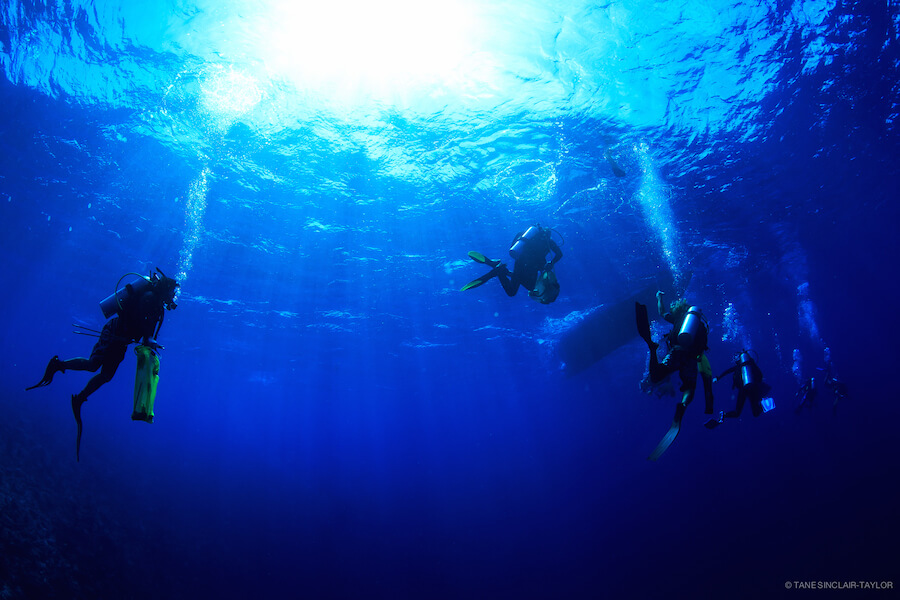
Source: University of Milano-Bicocca
Outstanding facilities. Global partnerships. Exceptional staff. These are some of the hallmarks of the University of Milano-Bicocca. Founded in 1998, the university consists of 16 departments with cutting-edge laboratories and interdisciplinary research.
It conducts research of global importance, addressing pressing issues such as climate change, biodiversity and habitat loss, ocean acidification as well as marine species invasion.
The Marine Sciences programme is a postgraduate course offered by the University of Milano-Bicocca in collaboration with the Maldives National University. Students of this programme can choose from three different tracks: Environment, BioEcology and Human Geography.
The first track explores the biosphere-geosphere coupling in marine and coastal environments — you will focus on understanding the ocean’s role in Earth’s system and climate change. The Bioecology track looks into biodiversity, marine botany, molecular ecology, biological systematics, population ecology, management of aquatic resources, and fisheries. The Human Geography track analyses how cultures relate to the spaces they originate from and then travel according to human movement.
You will also gain hands-on experience and conduct research in the Maldives at the MaRHE Centre, a hub for research and higher education fully equipped for students and researchers, offering top-level scientific labs.
Students enrolled in the programme will be armed with the skills, concepts and experience to understand all aspects of marine ecosystems and the pressures they face, ranging from overexploitation to climate change. This interface between research and learning provides critical skills for career opportunities across a wide range of scientific disciplines.
*Some of the institutions featured in this article are commercial partners of Study International








